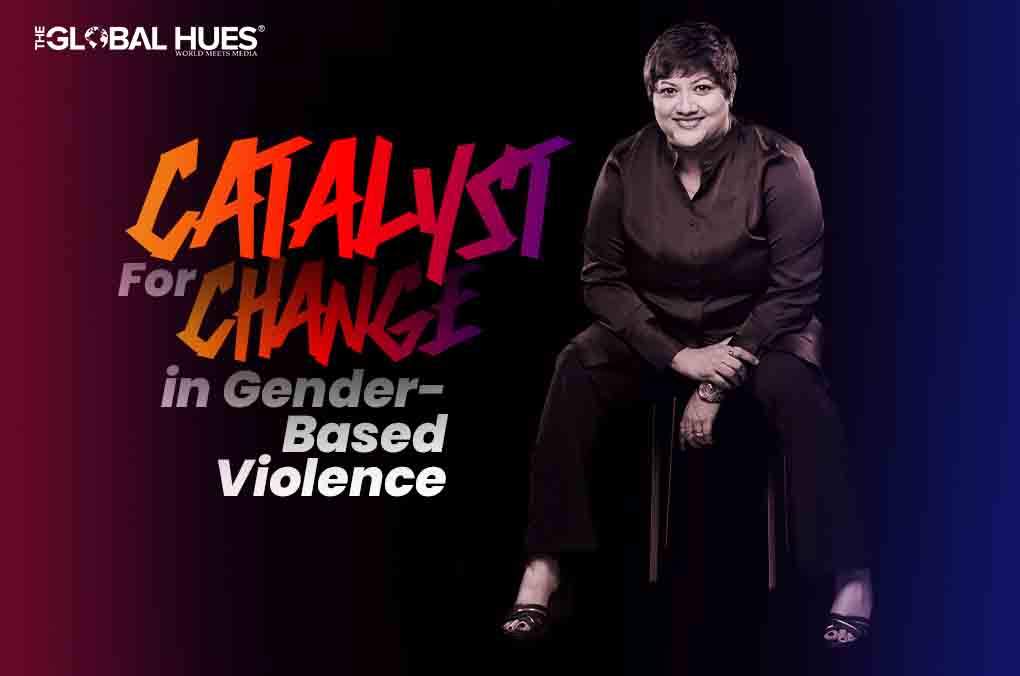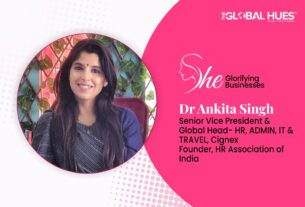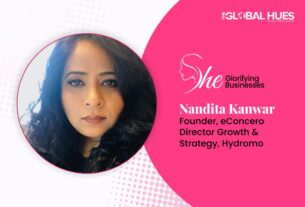In India, where 35% of ever-married women reported having experienced physical, sexual, or emotional violence from their husbands at some point in their lives, Invisible Scars Foundation, an NGO by Ekta Viiveck Verma strives to fight domestic violence and abuse (DVA), workplace sexual harassment, and rape culture. Through her NGO, Ekta assists survivors by guiding them to DVA resources such as police, legal, mental health, and shelters. The NGO provides financial assistance for food, rent, medical and legal help, and skill and capacity building.
Under the guidance of Ekta, a social entrepreneur, Human Rights activist, and Gender Based Violence specialist, Invisible Scars Foundation is working on issues of Gender Based Violence, with a focus on Domestic Violence & Abuse, Sexual Harassment at the Workplace, Diversity and Inclusion, Gender Equality & Empowerment, Rape Culture and Mental Health & Wellbeing.
In a candid talk with Ekta, we explore more about her mission and how it has helped GBV survivors.
What led to the inception of the ‘Invisible Scars Foundation’?
I founded Invisible Scars Foundation in 2016 which currently focuses on three areas- Domestic Violence and Abuse, Sexual Harassment in Workplace, and Rape Culture. Although the foundation works for all– men, transgender people, elders and children, it works with women primarily as they face the substantial impact of Gender-based violence.
We’re trying to reshape the narrative of domestic violence and abuse and move it away from just a gendered crime to a crime driven by behavioural issues. Many workplaces lack domestic violence policies, and existing resources tilt in favour of women, leaving some men and transgender community unsupported. As an NGO, we’ve partnered with Urban Company as the implementation partner for their Workplace Domestic Violence and Abuse Policy.
Such policies lessen the burden on already overstretched state resources by providing alternate resources to help survivors of abuse. A workplace DVA policy can create a happier workplace where employees receive legal, mental health, and financial aid. Our goal is to expand this gender-neutral narrative across India by collaborating with more companies for a supportive ecosystem that benefits both employees and society as a whole.
People should start looking at domestic violence as a crime rather than a ‘family matter.’ It is a human rights violation, and people should stop turning a blind eye. If you don’t know how to escalate the situation or how to report that case, you should reach out to an NGO and support a survivor. Asking the person directly if they need help is important; by doing this, situations can be handled wisely and independently.
How does your foundation create awareness and conduct training programs on these issues?
Invisible Scars Foundation began as a Facebook community. People think that women from the middle and upper middle classes don’t face violence. However, violence can occur in any demographic. It is an insidious crime that has many facets– physical, financial, emotional, and sexual abuse. The community’s impact started growing when we started providing assistance in any form we could. Social media and word-of-mouth helped expand our outreach.
Today, people reach out to us to conduct awareness sessions. We have conducted sessions for corporate communities, doctors such as obstetricians, and gynaecologists who are first line of contact for victims as well as NRI in the US and UK.
Do you think that the ‘Protection of Women from Domestic Violence Act, 2005’ needs to be updated?
Yes. The Domestic Violence Law Act dates back to 2005. The society is slowly evolving and more women are speaking up. Now, society is progressing towards equity, prompting the need for additions to existing laws. The current women-centric focus of the Domestic Violence Law Act should extend to include provisions for transgender people, men, and survivors of sibling, child, and elderly violence, along with recognizing digital abuse. When society is evolving, laws should also evolve.
Often, people neglect the power of legal mediation, and it doesn’t get promoted by the legal community. The legal community needs to come together to provide legal aid and if they require sensitization on the subject of DVA, the NGO is ready to provide that. So, there should be additions and amendments to the current law. Safe spaces need to be created where one discusses domestic violence abuse as a behavioural issue. I believe these additions to the law will bring some changes in the ecosystem and create a more equitable society for men and women.
Since 2006, how and in what ways has the NGO made an impact?
We registered the NGO in 2023. Before that, it was an initiative called ‘Invisible Scars Foundation’, a safe space with close to 3000 members. It’s a women-only group. Even though I have a male group, I have been trying to find a ‘sensitised’ male admin to join us.
We have been able to help close to 3500 people from 64 cities in 12 countries. If you’re Indian and contact us, we’ll assist you by offering guidance about the appropriate resources available to you for your current situation. Likewise, if an NRI contacts us, we’ll look for the appropriate authorities or local NGOs that can assist.
We assist Indian citizens in foreign countries by providing information, directing them to state resources and the National Commission for Women, and documenting their cases.
I handle the entire Prevention of Sexual Harassment (PoSH) work commercially. All the funds I raise go to the foundation.
Message from Ekta Viiveck Verma

As a society, we need to build more sensitisation. We need to understand that domestic violence and abuse is not a war between men and women; it is a real problem that impacts everyone in the family, and children are most affected because they are sensitive to the abuse happening. Growing up in abusive households can make them traumatised as they grow up. They may become abusive themselves, due to learned behaviour. Do not shut your eyes when you see any violence happening. It is our responsibility as citizens to address and prevent such issues for the betterment of society.
Read More Stories:
- Alaknanda Das: The Kathak Genius Who Danced Through Cancer
- Arundhati Bhattacharya: Behind the Leadership Lens
- Aruna Desai: Embracing Motherhood Like No Other
- Deepa Malik: A Woman With Limitless Spirits
- Dipti Vaidya: The Growth And Innovation Pioneer




